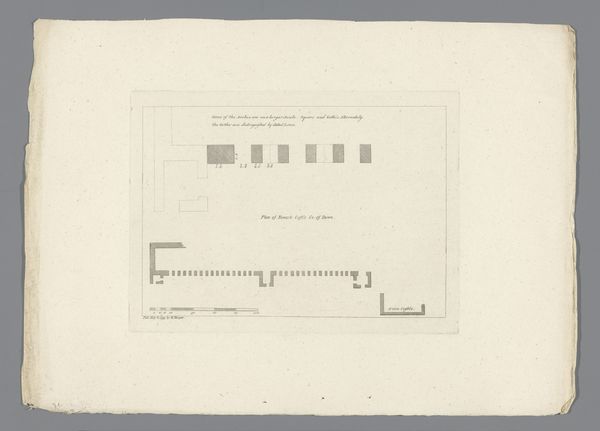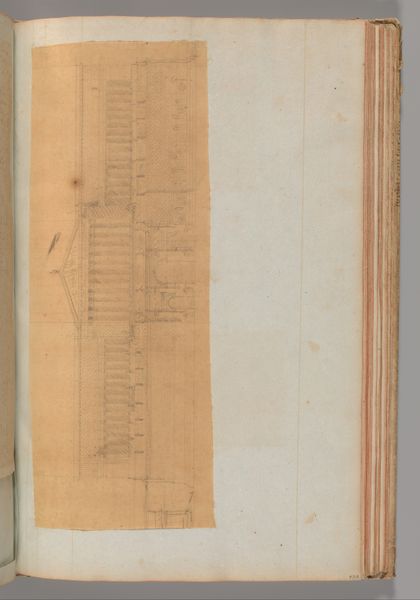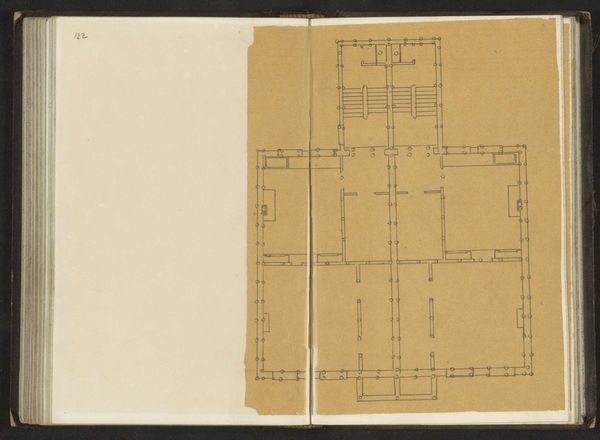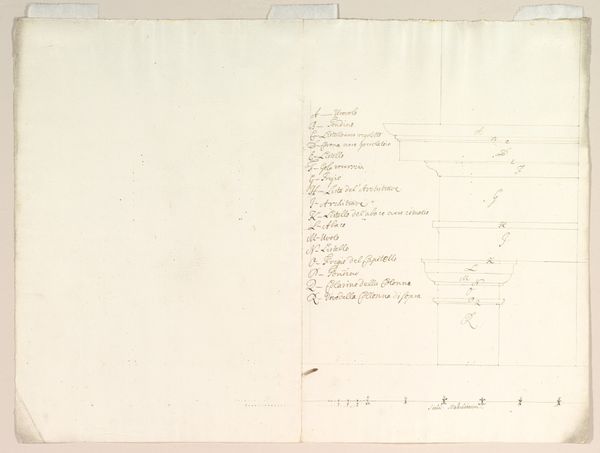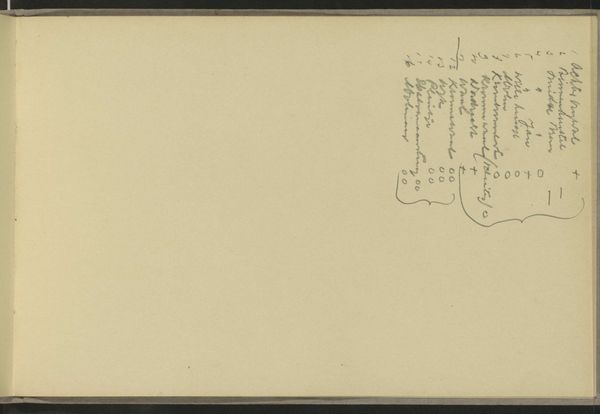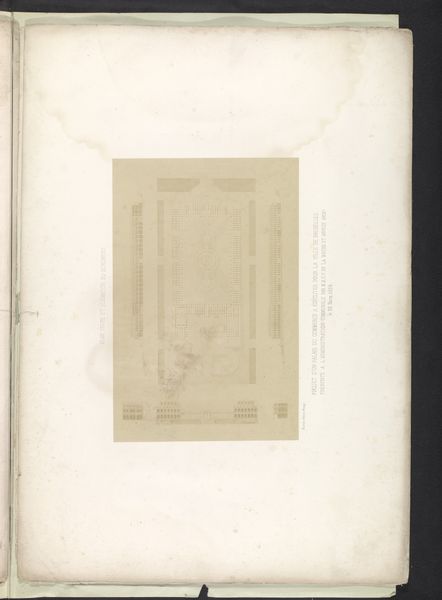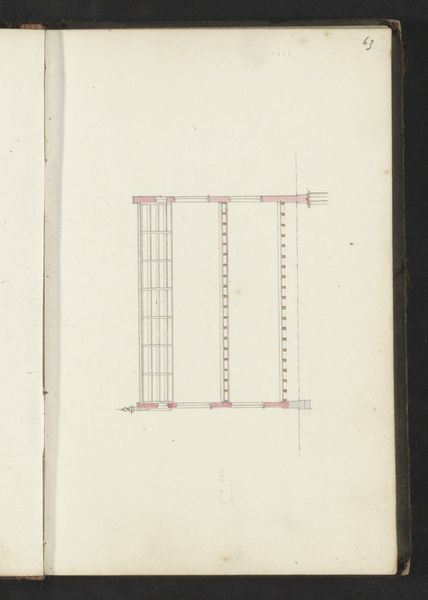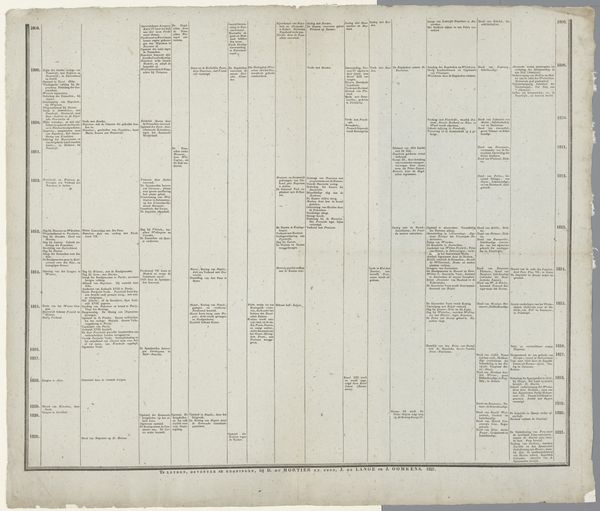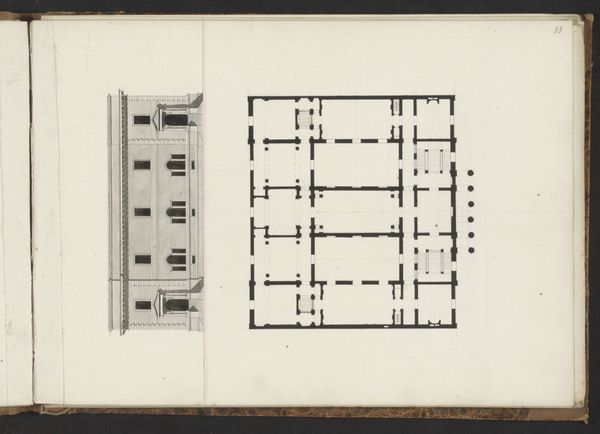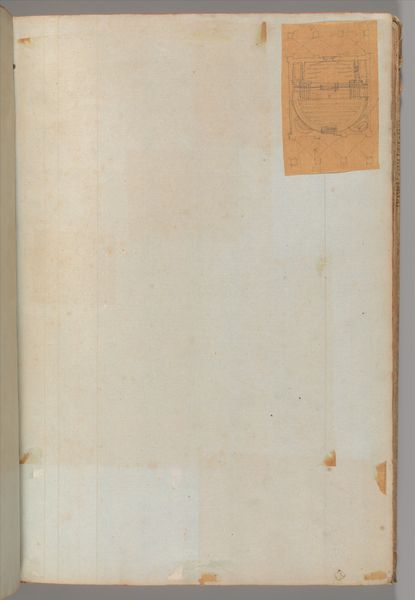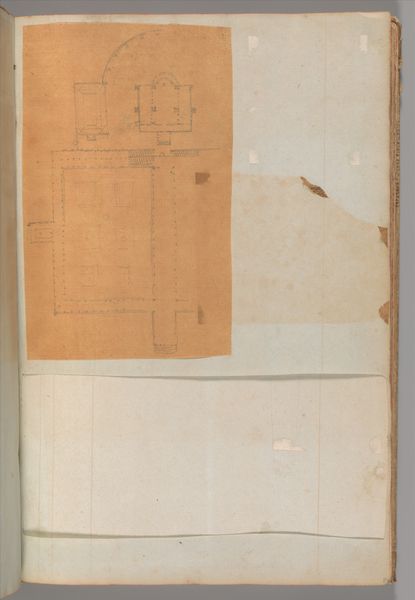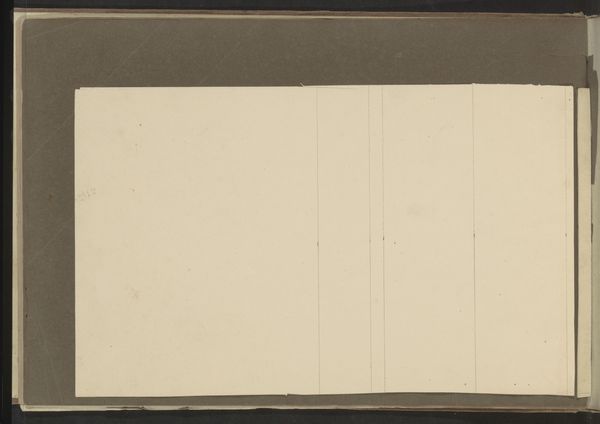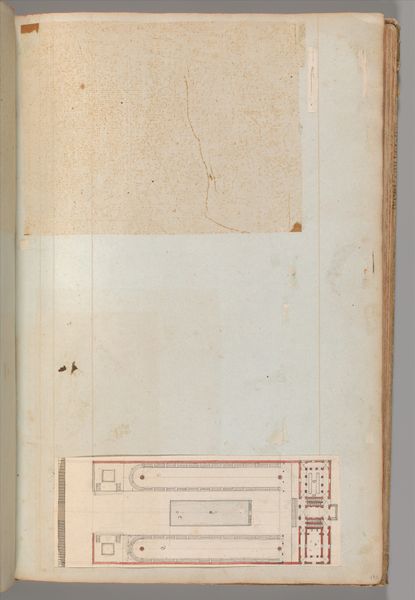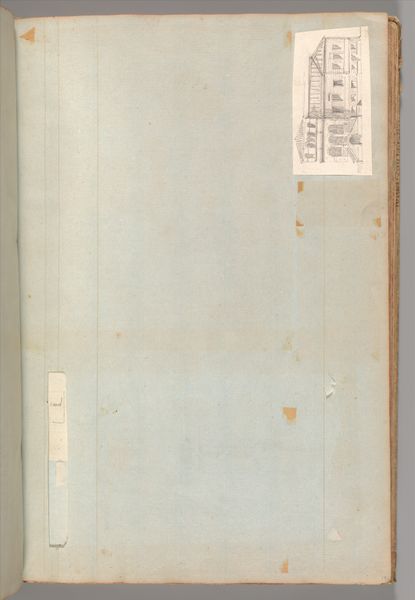
Technische tekeningen voor de constructie van een passerloods Possibly 1932 - 1938
0:00
0:00
anonymous
Rijksmuseum
#
aged paper
#
homemade paper
#
ink paper printed
#
sketch book
#
hand drawn type
#
personal sketchbook
#
fading type
#
sketchbook drawing
#
sketchbook art
#
watercolor
Dimensions: height 118 mm, width 167 mm, height 250 mm, width 320 mm
Copyright: Rijks Museum: Open Domain
Editor: So, this is a page from a sketchbook titled "Technische tekeningen voor de constructie van een passerloods," which roughly translates to technical drawings for the construction of a compass shed, possibly from between 1932 and 1938. The paper looks really aged, but the drawings themselves are still very clear. It feels very…technical, obviously. How do you interpret this work, seeing it now? Curator: I see this not merely as a set of instructions, but as a visual document embedded in a specific sociopolitical context. The precision and detail speak to a larger modernist impulse, a desire to order and control the built environment, but we need to ask: Who benefits from this order? What social forces were at play during this time influencing architectural design? Editor: That’s interesting. I hadn’t thought about it beyond its practical purpose. Curator: Exactly. Consider the 'compass shed.' Who used it? What kind of labor was performed there? By exploring the social history of the structure itself, we can then explore the larger economic structure this drawing is reflective of, or maybe even resistant to. Think about class, gender, race...how do they intersect in this seemingly neutral technical drawing? Is there perhaps even a dialogue with artistic movements from that time? Editor: It gives a whole other perspective to seemingly neutral or objective work, a really interesting challenge of perception and intent! Thank you for offering that insight! Curator: It's about questioning what's presented as objective and digging into the underlying power dynamics and the humanity present, even within technical drawings. It really enhances our experience of the art.
Comments
No comments
Be the first to comment and join the conversation on the ultimate creative platform.
